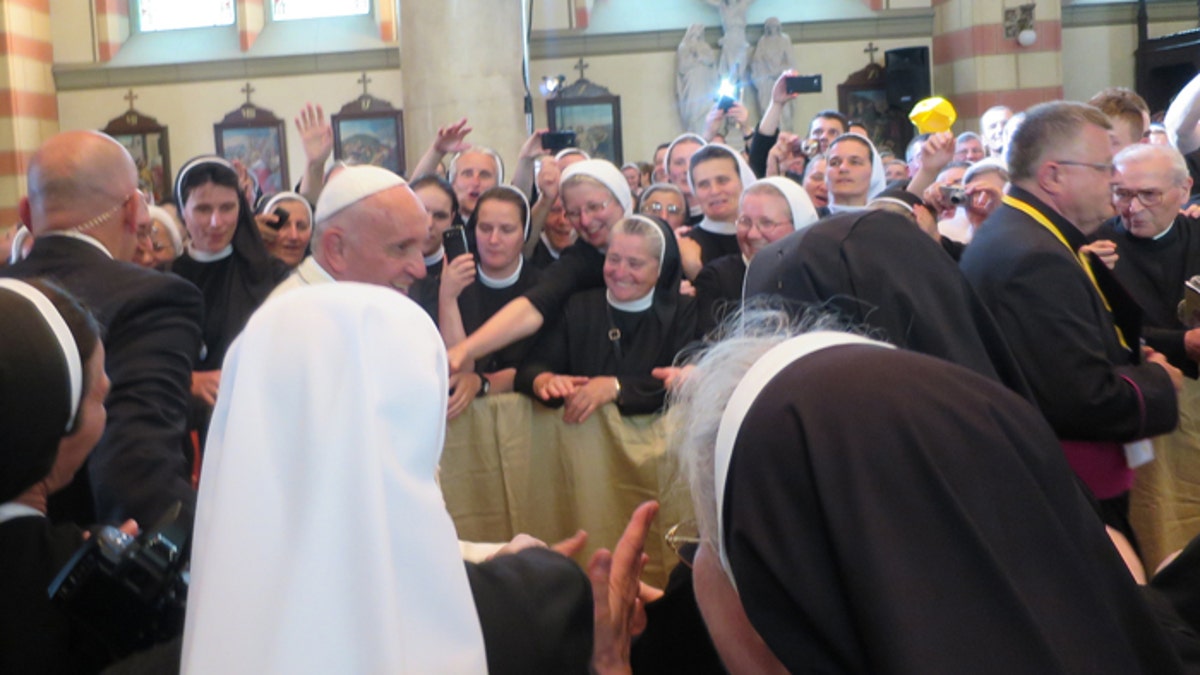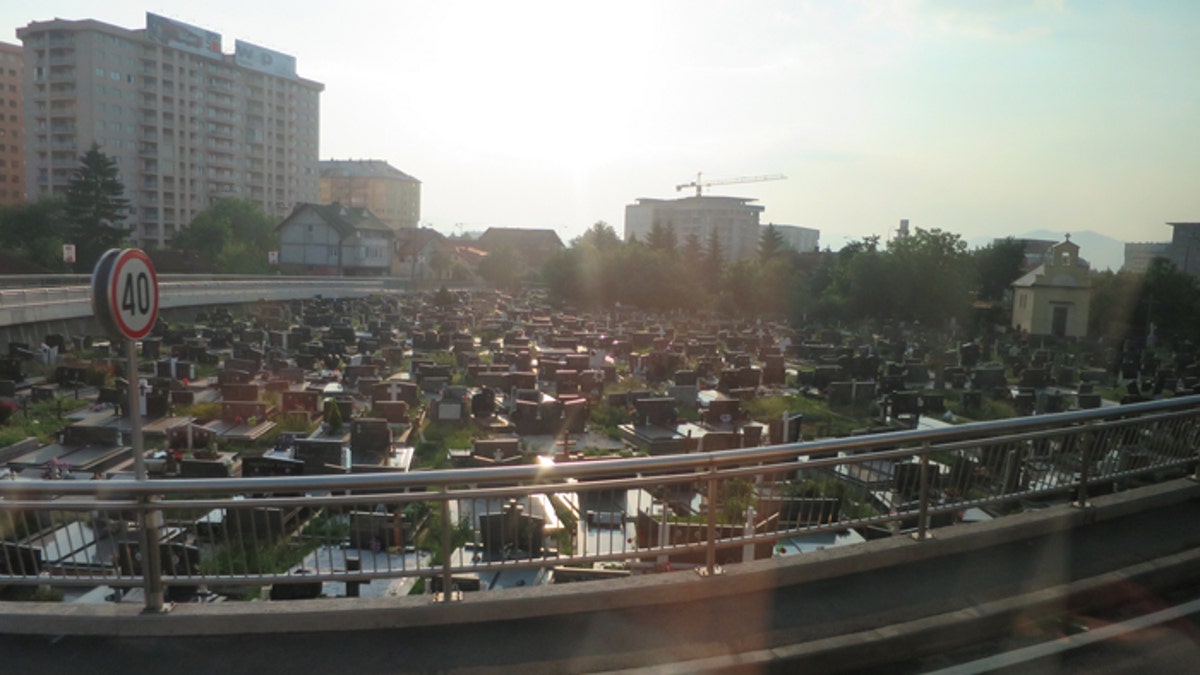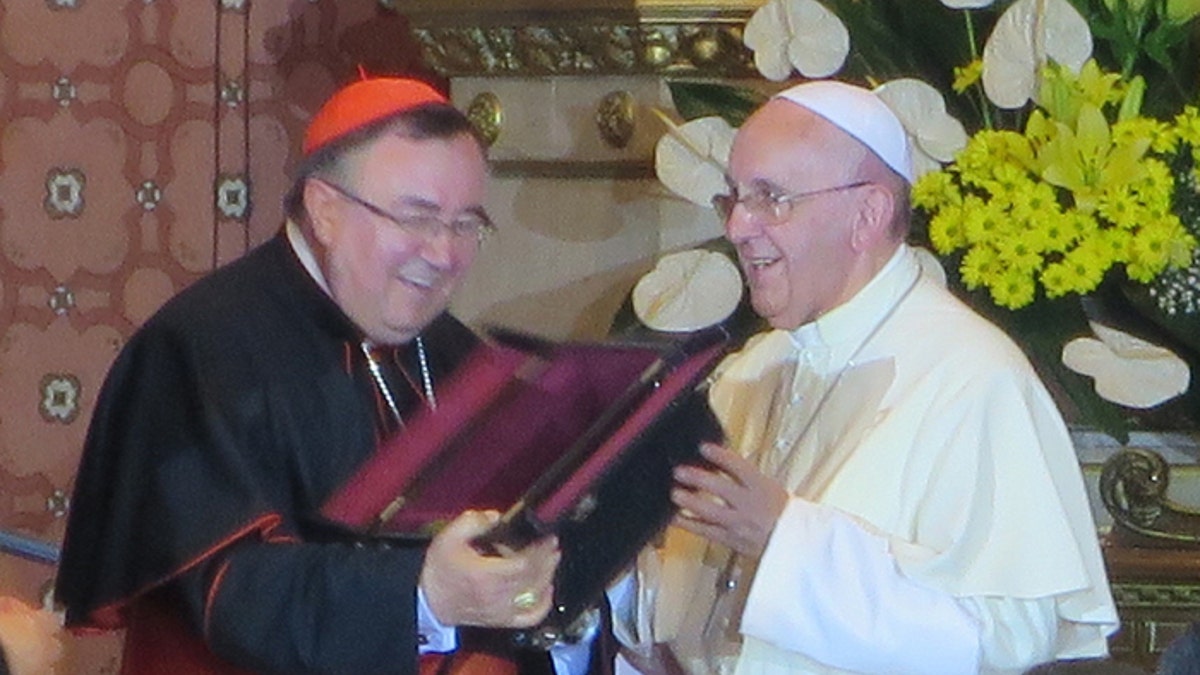
His holiness urged the people of battle-scarred Sarajevo to live together in peace and set an example for the world. (FoxNews.com)
A day after his intense one-day “pilgrimage of peace and hope” to Sarajevo, the war-scarred capital of Bosnia-Herzegovina, Pope Francis spoke optimistically of the country's efforts at reconciliation after the ethnic cleansing and three-way conflict 20 years ago.
Sarajevo can once again live up to its historical nickname of the “Jerusalem of Europe,” where Christians, Muslims, Jews and people of all faiths can live and thrive together, the Argentine pontiff said. In fact, the people of Sarajevo are already providing an example to the world of how people of different religions and cultures can leave behind internecine violence and live in peace, he said.
“Look for the good in all. Everyone has the seed of good.”
“The people of Sarajevo are working together as brothers,” the pope said.
Yet on the ground in this small country of 3.8 million, with one of the highest levels of youth unemployment in the world and an average per capita gross domestic product of about $9,000 per year, the visible scars of the recent conflict are still everywhere. The pope undoubtedly saw these scars as he drove through the streets of Sarajevo to celebrate Mass with more than 60,000 joyful worshippers at the Olympic stadium Saturday. Along his route, many buildings remain pockmarked with bullet holes from the war, and countless cemeteries with their white, often listing, marble headstones have popped up on what appears to be every available patch of grass.
Just across from the dilapidated stadium that hosted the 1984 Winter Olympics is Lion Cemetery. Built as a park during the Austrian-Hungarian rule in the late 1800s, it was later transformed into a large graveyard during the siege of Sarajevo which lasted 44 months until February 1996 – one of the longest and bloodiest in modern history.

Many of the estimated 15,000 siege victims are buried in Lion Cemetery here in separate areas reserved for their religion. There are sections for Christian Orthodox Serbs, Catholic Croats, Muslim Bosniaks and even Jews, although during World War II nearly two-thirds of the city's 10,000 Jews were wiped out. In all, the 1992-95 Bosnian war left nearly 100,000 people dead and resulted in half the population, some 2 million people, being forced to leave their homes, many of them never returned.
At the stadium, Pope Francis told a rapturous crowd that it was time to move beyond the haunting “atmosphere of war” and provide an example of co-existence to the world. During the one-day visit, the pontiff went to the city's cathedral to hear from Catholics persecuted during the war. Hundreds of religious and seminarians from Bosnia and nearby Croatia had waited hours in the heat for the event.
Father Zvonimire Matijevic, who made his way to the altar with two canes and the help of others, told of how he refused to leave his parish in Banje Luka despite the torture and murder of eight of his priests and many nuns. He was abducted by a Serbian militia on Palm Sunday in 1992, beaten and finally sent to a hospital on the brink of death after refusing to go on television and say that Catholic priests were criminals. He never fully recovered. After his moving account, his speech further complicated by multiple sclerosis, the crowds in the cathedral gasped and some wiped away tears when Pope Francis took both his hands and bowed low before embracing him.

Later an elderly nun, Ljubica Sekerija, spoke of being injured, having her rosary crushed and threatened with death by "foreign soldiers" if she did not convert to Islam, while 60-year old Father Jozo Puskaric recounted his four months spent in a concentration camp. The death threats, the excruciating beatings, the filth and the lack of food and water made the 120 days “feel like 120 years for me," the priest told Francis.
After embracing the three, the Pope laid aside his prepared remarks and told the crowd how moved he was by the details of their testimonies – the suffering, the greatness of their forgiveness, but also about the flashes of goodness in such dark times – for example how a Muslim woman named Fatima, who later emigrated to the U.S., sneaked food to Father Jozo, or when Sister Ljubica recalled how one of her jailers gave her a pear.
Francis told the younger seminarians “you must remember these stories of the martyrs, not in order to seek revenge, but in order to pardon, to build peace”
“Look for the good in all," he added. "Everyone has the seed of good.”
But no doubt the shaky peace and dismal post-war economy has led to an exodus. More than a third of Bosnia's pre-war, primarily Catholic Croatians left the country. In Sarajevo, Muslims now make up 80 percent of the population of about 300,000 while the number of Catholics is down by half from pre-war levels.
Pope Francis told religious leaders in Sarajevo that faith, hope and love can help the community overcome past divisions.
“A plurality of cultures and traditions can coexist and give rise to original and effective solutions to problems," he said. "Even the deepest wounds can be healed by purifying memories and firmly anchoring hopes in the future.”
